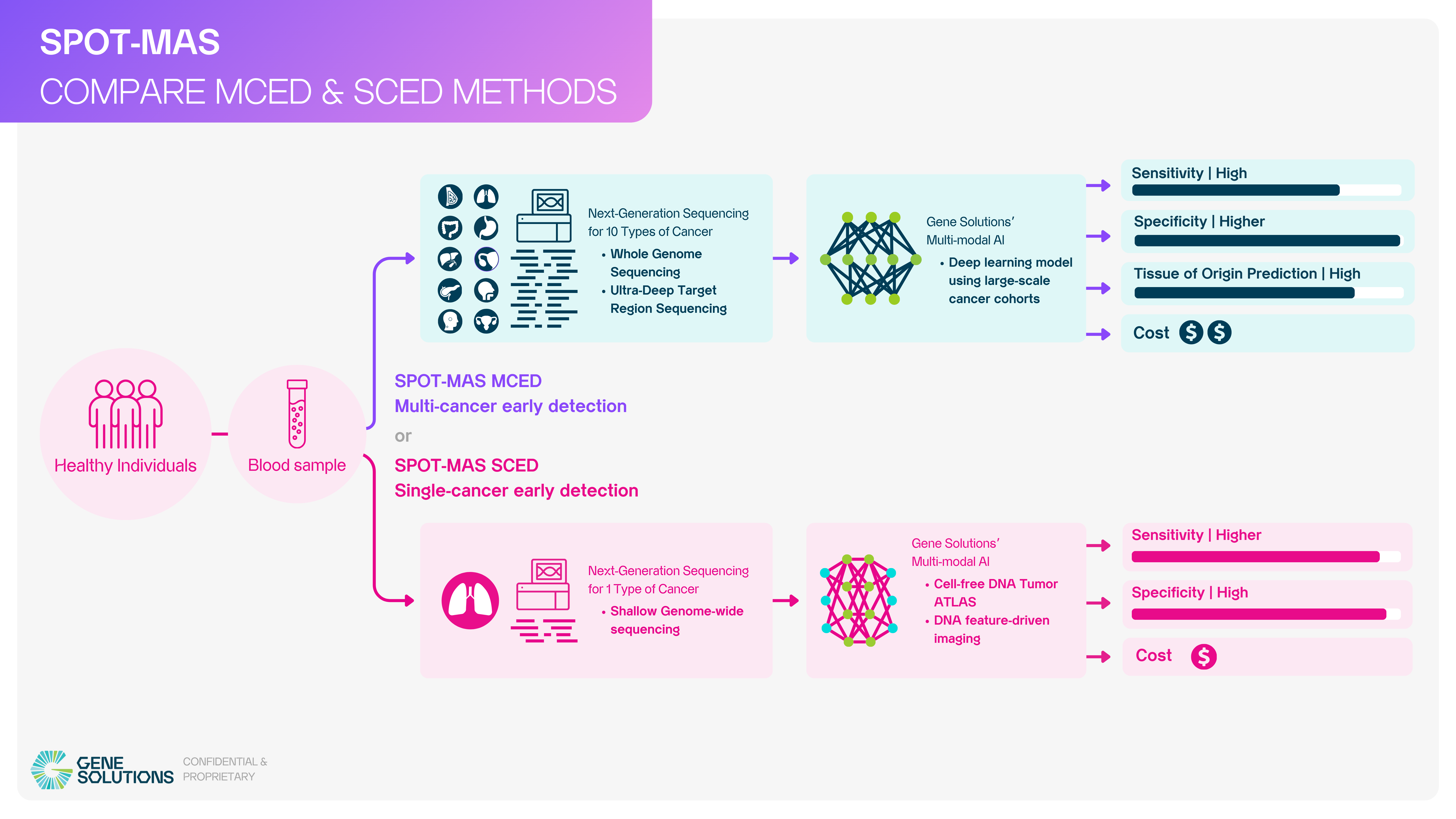Transforming Cancer Screening: When AI and ctDNA Technology Met
Cancer remains a pressing public health challenge in Asia, accounting for nearly 50% of global cases. Among the most commonly diagnosed are lung, breast, and colorectal cancers—many of which are detected only at late stages when treatments are less effective, more expensive, and patient outcomes are often poor.
Why Current Cancer Screening Falls Short
Despite years of progress, traditional cancer screening methods still have serious limitations. Many existing techniques struggle with low sensitivity and specificity, resulting in two major issues:
- Missed cancers (false negatives) – Delayed diagnoses can limit treatment options and worsen outcomes.
- Unnecessary follow-ups (false positives) – These cause needless anxiety, discomfort, and extra costs.
Furthermore, many screening methods are invasive or inconvenient, discouraging people from participating regularly—a critical factor in successful early detection.
ctDNA Technology: A Breakthrough in Early Detection
That’s where circulating tumor DNA (ctDNA) comes in, a revolutionary technology poised to change the way we screen for cancer. When cancer cells die, they release fragments of their DNA into the bloodstream. With ctDNA technology, these fragments can be detected through a simple blood test—long before any symptoms arise or imaging can reveal abnormalities.
In 2024, the FDA approved the first blood-based test for colorectal cancer, paving the way for the wider adoption of blood tests for cancer detection. This marks a pivotal step toward non-invasive, early cancer detection solutions that could save lives and reduce healthcare costs.
Gene Solutions’ MCED Methods: Multi-Cancer Detection Made Possible
Clinical studies worldwide have demonstrated the game-changing potential of Multi-Cancer Early Detection (MCED) tests, which can identify several types of cancer from a single blood sample. Gene Solutions’ SPOT-MAS MCED test is a standout innovation in this field.
After years of rigorous development, the SPOT-MAS test was clinically validated through the K-DETEK study in 2024, which included 9,024 participants. The study showed a remarkable specificity of 99.8% and sensitivity of 78.1%, proving its value, particularly for cancers without established screening programs, such as liver, pancreatic, ovarian, and esophageal cancer.
Making Screening More Accessible: Enter SCED Tests
While MCED tests showcase their strong value, their broad application can be expensive due to the need for high-depth sequencing to enhance the detection sensitivity of ctDNA, especially for certain cancers like breast cancer and early-stage tumors. Recognizing this challenge, Gene Solutions developed Single-Cancer Early Detection (SCED) tests, a more affordable and focused alternative.

By focusing on individual cancers, SCED tests use shallow genome-wide sequencing and novel feature engineering techniques that leverage our advanced ctDNA technology and proprietary AI models to deliver reliable, cost-effective screening at scale.
Why SCED Tests Are a Game-Changer
Cost-Effective – SCED tests minimize costs by targeting specific cancer-related genomic characteristics, thereby reducing resource requirements.
High Accuracy – With advanced AI models trained on extensive genomic insights, SCED tests achieve outstanding sensitivity and specificity, reducing false positives and false negatives.
Scalable and Flexible – Designed for widespread use, SCED tests can be deployed in diverse healthcare environments, from high-tech urban hospitals to resource-limited rural clinics.
At Gene Solutions, we’re committed to transforming cancer detection through innovation. Our mission is clear: make early cancer detection accessible, affordable, and reliable for everyone. With the proven success of our MCED platform and the introduction of SCED tests, we’re turning cutting-edge science into real-world solutions.
By harnessing the power of AI and ctDNA technology, we’re not just imagining a world where cancer is caught early—we’re building it. And with every step forward, we’re bringing the promise of better cancer outcomes closer to reality for millions.

